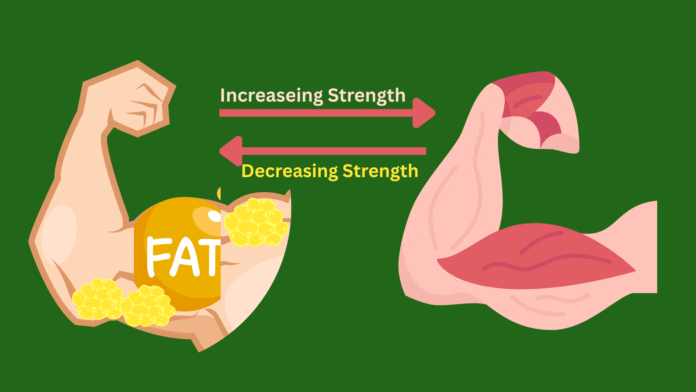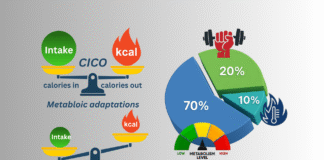Obesity and Muscle Quality: Why More Isn’t Always Better
Muscle mass is a poor indicator of muscle strength. Studies conducted to evaluate muscle mass, muscle quality, and muscle function in obese people showed that obesity is associated with poor muscle quality and hence reduced muscle function. Furthermore, studies also showed that an inverse relationship exists between muscle fat content and muscle quality/muscle functions, such as mobility, walking speed, climbing stairs, standing from a chair, lifting a load up to a height and an increased risk of falls. It is therefore more important for obese people to focus on improving muscle quality rather than maintaining or increasing muscle mass.
Understanding Weight Loss: What Happens to Lean Mass and Protein’s Surprising Role
Weight loss, achieved through a reduced-calorie diet, decreases both fat and lean body mass. Individuals with normal weight may lose more than 35% lean mass of total weight loss and regain relatively more fat. However, obese persons usually lose only∼20–30% lean mass of total weight loss and usually regain lean mass. Men tend to lose more lean mass than women because they are leaner than women. Diet-induced weight loss in obesity, therefore, results in a greater lean to fat mass ratio. The addition of protein to a diet that already contains RDA of protein has no effect on lean mass and muscle mass during weight loss. Moreover, the additional protein may have adverse effects on glucose metabolism. Protein supplementation of a hypocaloric diet reduces muscle insulin sensitivity and is involved in the pathogenesis of insulin resistance and type 2 diabetes.
How Weight Loss Improves Physical Function Despite Muscle Mass Loss
Diet-induced weight loss improves physical functions such as balance, walking speed, or climbing stairs. This improvement in physical functions is attributed to the loss of excess total body fat mass. Though weight loss due to exercise improves muscle strength but it does not offer as much improvement in physical function as diet-induced weight loss does. Weight loss due to the combined effect of diet and exercise results in even greater improvements in physical function than either of these factors alone. Despite loss of muscle mass, weight loss improves muscle quality and overall physical functions.
Summary
To summarize, obese individuals have more muscle mass than normal weight but poor muscle quality. Weight-loss treatment based on hypocaloric diet containing adequate (but not excessive) protein with physical activity is recommended to improve muscle quality s and physical function.
Key Takeaway: Focus on Muscle Quality, Not Just Mass, for Better Health in Obesity




